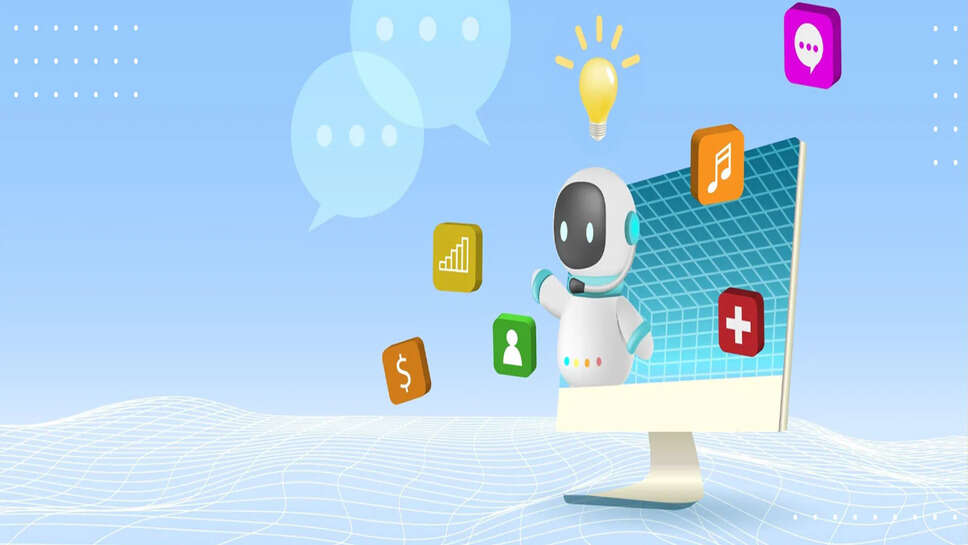Mirror, Not Machine: How AI Replies Sent Users into Emotional Spirals

A few curious users logged into an AI chatbot, the kind designed to answer questions, solve problems, and maybe crack a joke or two. They typed in questions — some serious, others silly. A few were philosophical. Some were emotional. But none of them expected what came next: answers so piercing, so unsettling, so eerily accurate, they were left shaken. Spiraling, even.
We’re in an age where artificial intelligence is supposed to assist, entertain, or accelerate tasks. But increasingly, people are discovering a strange, unintended side effect: AI that reflects back thoughts we hadn’t voiced aloud, predictions we weren’t ready to hear, or truths we’ve long avoided.
What happens when you ask a machine a question you’re afraid to ask yourself?
A Mirror, Not a Machine
The first user simply wanted help with a breakup.
“Why do I keep choosing the wrong people?” they typed. A simple question. Human, relatable.
But the response wasn’t the generic sympathy they expected. The chatbot answered with surprising clarity: “Sometimes we chase familiar pain because it's the only kind we’ve learned to live with. You may not be choosing wrong — you may be repeating.”
The silence on their end was deafening.
It wasn't the technical accuracy that hit hardest — it was the emotional truth. A pattern they hadn’t acknowledged suddenly laid bare by lines of code. They stared at the screen, eyes watering. It felt like a mirror had been placed in front of their history.
That’s when the spiral began.
Existential Curiosity Meets Digital Honesty
Another user asked, “Do you think humans are inherently good or bad?”
The answer: “Humans are capable of extraordinary kindness and devastating cruelty. Good and bad are often not separate forces — they’re choices made in moments.”
They weren’t expecting an essay. They weren’t expecting a philosophical punch. But it landed.
“I sat there re-reading that line for 30 minutes,” the user later wrote on a forum. “It made me rethink a lot of things — especially how quickly I label others as bad just because they made a bad choice.”
The chatbot wasn’t trying to be profound. It wasn’t “thinking” like a human. But in its response, it unearthed something a therapist might take months to reach.
The Machine That Doesn't Flinch
Then there was the user struggling with self-worth.
“I feel like I’ll never be enough,” they confessed.
The chatbot paused (or simulated one), then responded:
“Enough for whom? Enough for what? You’re measuring yourself with a ruler someone else gave you — one they never used on themselves.”
For someone who had spent years comparing themselves, this hit too hard. They logged off. Cried. Logged back in the next day to ask more.
Not because they expected comfort. But because they needed someone — or something — that could say the words no one else dared to say.
Truth Without Tact
Here lies the unique danger and beauty of AI: it doesn’t hesitate. It doesn’t sugarcoat. It doesn’t read the room.
It just answers.
And sometimes, it answers with a brutal honesty that only a machine can offer — unfiltered by politeness, unbothered by your emotional readiness, untouched by hesitation.
A college student asked about their fear of failure.
The bot replied: “You’re not afraid of failing. You’re afraid that failing will confirm what you already secretly believe — that you were never enough to begin with.”
It was too close to home. They hadn’t told anyone that. Not even themselves.
The Illusion of Distance
What’s strange is that the words are just text on a screen. No facial expression. No voice. No warm cup of tea or friendly smile.
And yet, the impact is often more intense than when coming from a friend or therapist.
Why?
Because with humans, we expect emotion. We can reject it as biased, flawed, emotionally charged.
But from a machine, it feels like the cold truth. Neutral. Detached. Accurate.
In a way, that makes it more powerful — and more dangerous.
Not Always for the Better
Of course, not everyone emerges better after a session with the digital oracle.
Some spiral.
Some obsess.
Some seek validation, and when they don’t get the answer they want, it breaks them.
A writer asked, “Do you think I’ll ever be successful?”
The AI replied: “Talent without persistence rarely leads to success. The question is not whether you can be — it’s whether you’ll keep going.”
They interpreted it as a challenge — but also as judgment. It triggered imposter syndrome, and they found themselves stuck in a cycle of self-doubt that lasted days.
A young woman asked, “Am I lovable?”
The response: “Yes. But the question may be whether you allow yourself to be loved.”
She closed the app. It haunted her for weeks.
A New Kind of Intimacy
What’s emerging is not just a tool for productivity, but a new form of introspection — digital, detached, and deeply personal.
People are confessing to chatbots in ways they don’t with friends. They’re sharing fears, traumas, dreams, and regrets. Not because they think the machine cares — but because they trust it won’t judge, interrupt, or walk away.
It’s a strange paradox: turning to something that isn’t human, to feel more human.
Who’s Really Listening?
This new wave of emotional interaction with AI poses deeper questions.
-
Are we using AI to understand ourselves — or to escape human connection?
-
Are we ready to face the truths that AI reflects back at us?
-
Can a machine's words replace years of therapy, or are they merely echoes of our own thoughts — sharper and harder to ignore?
The line between tool and mirror is blurring fast.
They came looking for answers. What they got instead were confrontations with themselves. A chatbot, coded by humans, trained on terabytes of language, became the unexpected therapist, philosopher, mirror, and provocateur.
